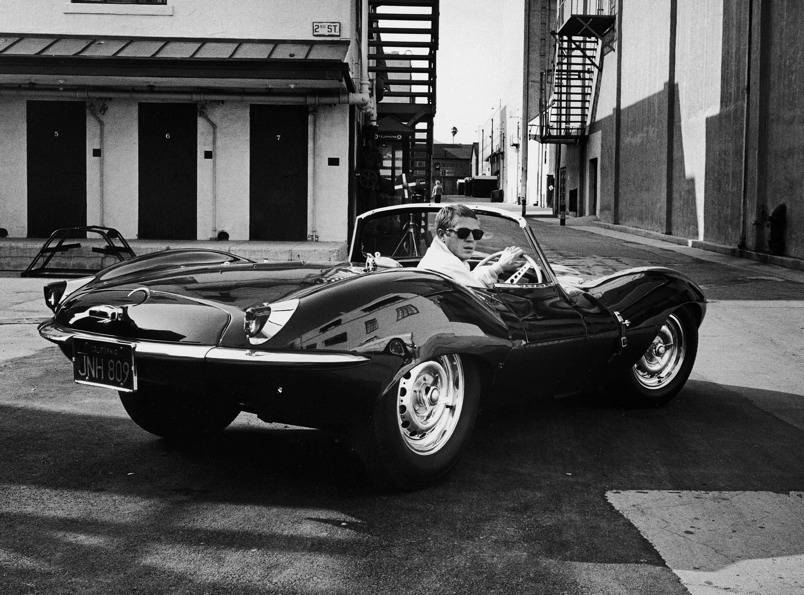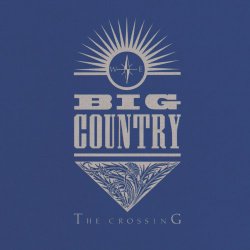In the wake of U2’s burgeoning success in the early 1980s, a small Celtic music invasion took British and American radio by storm. With their unabashed passion, politics and anthemic rock, it was as if Bono and the boys pointed the way for other British Islanders to follow their road to success by bucking the synth-pop trend. Of course, U2 proved to have the staying power and artistic innovation that bands like The Alarm and The Waterboys could only dream of.
Arguably the “best of the rest” behind the Dublin superstars was the Scottish quartet, Big Country. Fronted by gifted songwriter, singer and guitarist Stuart Adamson, the band also featured the outstanding bassist Tony Butler, as well as second guitarist Bruce Watson and Mark Brzezicki on drums. After quickly building their reputation by opening for the Jam on their farewell tour, the band found near-instant success in 1983 with their debut album, The Crossing. With their trademark sound of chiming, almost piper-like guitars, soaring, declarative vocals and rock solid rhythm, their namesake single “In a Big Country” quickly became ubiquitous even as it went seriously against the grain of both the Depeche Mode/New Order/Cure style of dark electronica then dominating the Alternative airwaves and the slick, synthy, MTV-ready fare that Tears for Fears and Duran Duran were having such Pop success with. Nonetheless, The Crossing was a critical and popular hit, going platinum in England and gold in the States. Everyone seemed to agree that U2 had real competition for world’s best Celtic rock band. And with songs like “Chance”, about a love affair that ends only with unwanted children, Adamson proved himself a master of nuanced, evocative narrative balladry in addition to his beloved anthems.
http://www.youtube.com/watch?v=-2mn8cTyWzQ
The band followed up with the excellent EP, Wonderland — the impassioned title track wound up being one of the best songs they ever recorded. Then, an amazing thing happened on their second full album, Steeltown: Big Country created some of the most stirring and emotional rock music written at that or any time really, a near concept album about the trials and tribulations of working class Scotland during the post-industrial era that encompassed economic hardship (“Steeltown”); false prophets (“Flame of the West”); war and death from the perspectives of both sexes (“Where the Rose is Sown” and “Come Back to Me”) and ultimately ended with an amazingly frank and poetic expression of disillusionment with mankind as a whole (“Just a Shadow”).
But as if to prove the axiom that great art and great popularity do not go hand in hand, Steeltown was not a commercial success. The music was remarkable but not exactly fit for a party or dancing. Somehow U2 could get away with such political downers and still make arena rock. When Big Country did it, the result was more parochial, more insular, more suitable to rumination than waving a lighter to it. To be sure, the band had several more years of small-scale hits and successful music, including 1986’s The Seer, which contained the glorious, yearning “Eiledon”, and 1988’s Peace in our Time. But continually putting himself so nakedly out there for diminishing returns must have been a hardship for Adamson, particularly when the band stopped receiving distribution in the USA. They soldiered on through the 90s and put out good music, particularly 1999’s standout swan song, Driving to Damascus (long out of print and now a valuable collector’s item), but it seemed that having touched mega-success so quickly only to watch the band recede into near footnote status had taken a toll. In 2001, after a long struggle with alcohol, Stuart Adamson hanged himself in a Hawaii hotel room far from his adopted Nashville home. Big Country was no more and the world had lost a poet and a true Rock original. He was 43 years old.
As with all musicians who are lost too soon, all we have is their is their body of work to remember them by. Though not a band for the masses, the best of Big Country holds up very well, especially in terms of its commitment, its utterly unique sonic approach and its unapologetic romanticism. Today their music may seem like “the garden in the forest that the world will never see.” But like the dream itself, once heard it stays with you.



